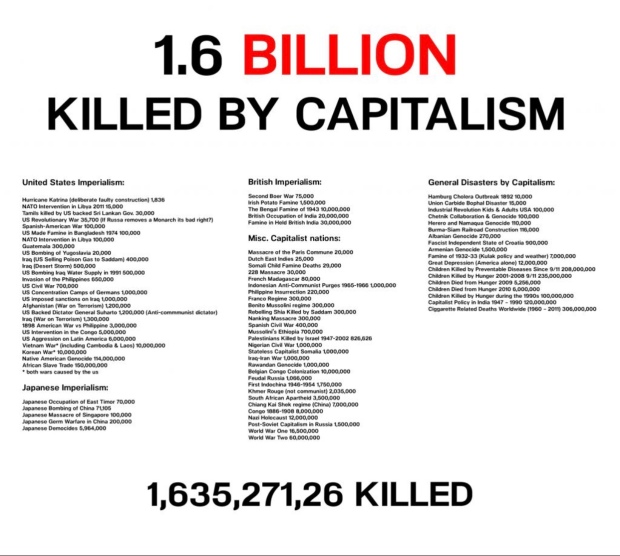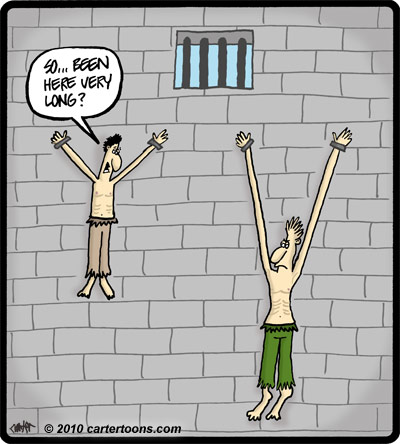I’ve been busy with personal stuff lately but I felt like this post is necessary because there is urgent need for clarification on multiple topics. There is a lot bad information especially historical economics. What I mean by historical economics is how systems of economics operated in previous centuries, or years for that matter. The change in a given economic system can be seen month to month, year to year, decade to decade. Obviously the more time used in comparison the more drastic the changes. I have seen on social media, multiple bad takes on historical economics that conflate unrelated instances of economic failure on the system itself. Fortunately for you, my areas of expertise in history and my self taught economics knowledge can help us “read the fine print” about the nature of historical economics. In this instance, I will use modern economics as a comparison. Modern being defined as past 20 years or so.
Capitalism- What is it?
Much of the misunderstanding comes direct from the definition of capitalism. Capitalism is a broad term that encapsulates multiple different economic climates and systems. Capitalism is almost never pure. There has been very few times where pure capitalism has existed. Even in those few times, it was brief. According Merriam Webster’s dictionary it defines capitalism as:
: an economic system characterized by private or corporate ownership of capital goods, by investments that are determined by private decision, and by prices, production, and the distribution of goods that are determined mainly by competition in a free market
This definition describes pure capitalism. At the end of the definition it says “Free Market” which in my opinion is a more accurate description of pure capitalism. You may ask what makes capitalism “pure”? Well simply, when a market is free of state or government intervention then its pure. If government is involved in doing any sort of regulations, laws or anything to that effect its not true capitalism anymore.
People often make the mistake of assuming that economic systems are black and white. Its either capitalism, socialism, communism or mercantilism. There is no in-between! Wrong. An economic system can have facets or features of any combination of economic system. Economic systems are normally in a gray area, a mix between capitalism and socialism.
Historically Wrong Assumptions
Let me start by saying it straight out: Anytime the government or state is involved in any economic system, that economic system is not “free market”. This is the pervasive commonality that unmasks all these assumptions as wrong.
The first assumption is that if a capitalist system is left unregulated or under-regulated it will lead to rampant corporatism.
This is false because all you have to do is look at our modern economic system here America. Just google how much corporate lobbyists give to government on yearly basis. The problem is that government actually allows corporatism to thrive. Government regulations and laws are usually written by or influenced by big corporations. It allows these big corporations to regulate out their smaller competition by making the business too costly and too complex to get into. Logically then, it would seem that only getting rid of government completely would defeat most corporatism. You also have to keep in mind that monopolies are in part created by government economic policies. In a true free market without state intervention, competition would keep big corporations honest. Plus there is such recourse as common law which would dictate negotiation of contracts being broken and other such infractions.
The second assumption is capitalism has killed 1.6 billion people. (From meme below)

Of course, nobody would argue that capitalism killed nobody. However, the death toll is not 1.6 billion. If you browse all the listed “events” that capitalism was supposedly responsible for the death, the great majority of them were caused by the state. You can’t possibly blame all the war listed under “America Imperialism” on capitalism. Economic systems don’t have armies or military. States do. Which leads directly into my third assumption which will finish this thought.
The third assumption is that the Military Industrial Complex is a result of capitalism.
One of my favorite areas of history and geopolitics is the MIC. I did my senior college project on the MIC. Capitalism is not responsible for the MIC. The MIC occurred as a vehicle for the government to streamline its war production capabilities. The MIC started out very grassroots during the early years especially during the War of 1812. It started to take on similar modernly known features during the American Civil War. One feature of the MIC is the government handing out contracts to private businesses. This is started in earnest during the civil war, Abraham Lincoln’s war department gave contracts to gun manufacturers and textile manufacturers for uniforms. You say but thats capitalism! No.
When the government gives out taxpayer money (stolen money) to a business for a good or service, its state socialism. (Remember government money is a net-negative on the economy because its stolen, and even though its used to help the economy, it gets taxed AGAIN, making its worth exactly zero dollars in creation.) All of this to say that MIC progressively has gotten worse. It peaked during the Cold War into the mid 1990s when secretary of war (1995) and then former Vice President Dick Cheney modernized the whole process. Under Cheney, the Department of Defense gave out bigger contracts that costed even more money. During the cold war, the War department often gave contracts with little oversight. The DoD had absolutely no accountability for at least 40 years. In the end the DoD, the government squandered 21 trillion dollars. ( National Debt is 25 trillion for reference.
Conclusion
We need to stop conflating an economic system with government intervention. The fine print literally reads: economic failures are usually involved with government actions. If you need further proof then just do a little research on the Great Recession of 2008. The Federal Reserve saw the collapse coming, yet they took no action. The government allowed banks to trade bad junk loans. The government allow the regulation to keep banks propped up with fiat via the federal reserve. Of course rather than letting bad banks fail, the government bailed them out. That isn’t capitalism. Capitalism or more accurately free market would have let those banks fail. Free market is the only pure form of capitalism. Its also one of the few economic systems to have never been tried. (Communism and Socialism have both been tried on multiple occasions and failed each time, 100 million deaths in 20th century)
So next time, someone blames a failure on capitalism, ask them to define capitalism. If they give you the dictionary definition then its likely the failure is due to state intervention rather actual economic system factors. Economies are complex and multi-faceted, if they are operated without government regulation and laws then they can be very stable because only an overreaching power could cripple an economy similar to 2008 and now in 2020.
Think for yourself.
Thanks for reading!
Check the Social Media
















